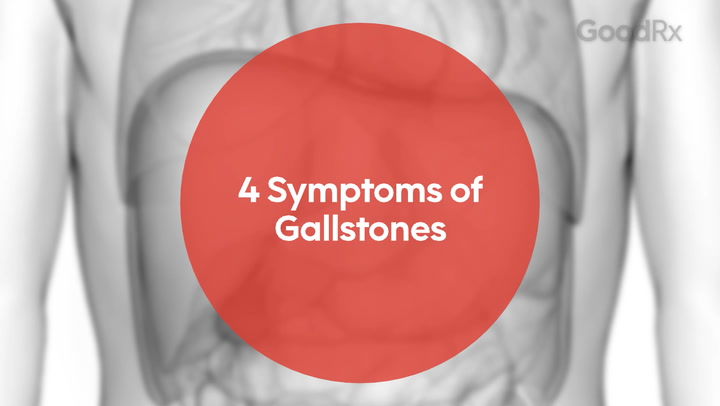
Do I Really Need Surgery to Remove My Gallbladder?
Key takeaways:
Not everyone who has gallstones needs a cholecystectomy, a procedure where a surgeon removes the gallbladder.
If you have gallstones you can safely avoid surgery so long as you don't have symptoms.
Avoiding unnecessary surgery protects you from side effects and complications.
Many people in the U.S. have gallstones. But most of those people don’t have symptoms, which means they don’t need surgery. But if you have gallstones that cause symptoms, like abdominal pain, it’s likely that you’ll need surgery. A cholecystectomy is the surgical procedure to remove the gallbladder.
Any surgery brings a risk for side effects and complications. So if you have gallstones, it’s important to know that you don’t always need surgery to remove your gallbladder. Let’s look at gallstones and the signs you need surgery to remove your gallbladder.
What are gallstones?
The gallbladder is a small organ that sits under the liver and stores bile acids. Bile acids are important for digestion because they break down fatty foods. When you eat, the gallbladder releases bile acid into your intestines through the bile duct (a tube that connects the gallbladder to the intestine).
Prescription Savings Are Just the Beginning
See what other benefits you qualify for—from cashback cards to cheaper insurance.

Sometimes gallstones form inside the gallbladder. Gallstones are very common — about 10% to 15% of people in the U.S. have them. Most people don’t know they have gallstones because the stones don’t cause any symptoms. But gallstones can lead to pain and other symptoms in some people.
Why do some people with gallstones have surgery to remove their gallbladder?
You’ll need to have surgery to remove your gallbladder if you have symptoms from your gallstones. Gallstones can block the opening from the gallbladder to the bile duct. When this happens, you experience biliary colic, a specific type of pain that:
Often starts in the upper right part of the abdomen
Sometimes travels to the upper back or right shoulder
Lasts 15 minutes to several hours
Starts soon after eating or in the middle of the night
May cause nausea or vomiting
While biliary colic is painful, it isn’t dangerous. But it’s a sign you need your gallbladder removed. That’s because people who experience biliary colic are at higher risk for more serious complications of gallstones.
When is it a good idea to get your gallbladder removed?
Medication can’t get rid of gallstones. People with symptoms from gallstones usually need surgery to remove their gallbladder so they don’t develop gallstone complications.
Experts recommend a cholecystectomy if you have:
Symptomatic gallstones: Your provider may recommend removing your gallbladder if your gallstones cause symptoms. This is to prevent you from developing more serious problems in the future.
Inflammation of the gallbladder: Acute cholecystitis, inflammation of the gallbladder, is a serious condition. Treatment nearly always includes cholecystectomy.
Inflammation of the pancreas: When gallstones cause pancreatitis, it can lead to other serious health problems.
Gallbladder cancer: Gallbladder cancer is a very rare type of cancer. But if you have cancer in the gallbladder or a high risk of developing cancer in the gallbladder, you may benefit from surgery to remove the gallbladder.
Do you always need your gallbladder removed if you have gallstones?
You don’t necessarily need surgery to remove your gallbladder if you have gallstones. If you don’t have symptoms from your gallstones, the Society of American Gastroenterologic and Endoscopic Surgeons says you shouldn’t have surgery to remove your gallbladder.
That’s because there’s no evidence that people who have gallstones that don’t cause symptoms actually benefit from gallbladder removal. Since up to 70% of people don’t have any symptoms from their gallstones, that means most people can skip surgery.
What are the benefits of avoiding an unnecessary cholecystectomy?
Cholecystectomy is one of the most common surgical procedures. And it’s very safe.
But all surgeries come with risks — like anesthesia complications, bleeding, and infection. There is also the risk of injury to the bile duct during cholecystectomy. Bile duct injury is a rare, but serious complication. It needs additional surgeries to repair.
Another benefit to avoiding unnecessary surgery is saving money. The average out-of-pocket cost of cholecystectomy for Medicare patients varies from $597 to $1,148, depending on where you do the surgery. Other factors that affect your out-of-pocket cost include the type of insurance you have and where you live in the U.S.
The bottom line
If you have an ultrasound or CT scan of the abdomen, there’s a good chance you might find out that you have gallstones. But gallstones don’t cause symptoms for most people. And the data show that there’s no benefit to surgery for people who have gallstones that don’t cause symptoms. Avoiding unnecessary surgery means you can avoid possible complications from surgery.
Why trust our experts?


References
American Gastrological Association. (n.d.). Gallstones. AGA GI Patient Center.
Choosing Wisely. (2022). Society of American Gastrointestinal and Endoscopic Surgeons: Avoid routine cholecystectomy for patients with asymptomatic cholelithiasis. ABIM Foundation.
European Association for the Study of the Liver. (2016). EASL clinical practice guidelines on the prevention, diagnosis and treatment of gallstones. Journal of Hepatology.
Hassler, K. R., et al. (2022). Laparoscopic cholecystectomy. StatPearls.
Institute for Quality and Efficiency in Health Care. (2021). How does the gallbladder work? Informedhealth.org.
Medicare.gov. (2021). Procedure price lookup: Laparoscopic cholecystectomy.
Pucher, P H.., et al. (2018). Outcome trends and safety measures after 30 years of laparoscopic cholecystectomy: A systematic review and pooled data analysis. Surgical Endoscopy.
Society of American Gastrointestinal and Endoscopic Surgeons. (2010). Guidelines for the clinical application of laparoscopic biliary tract surgery.
Wang, J. K., et al. (2009). Incidental gallstones. The Permanente Journal.











